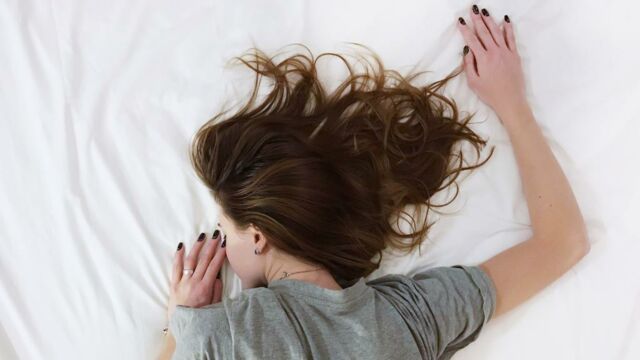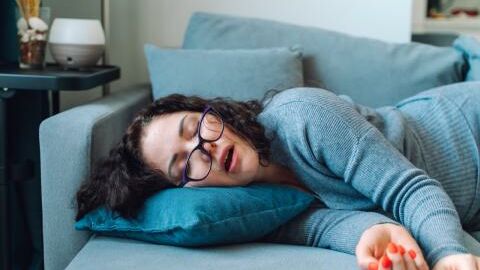Sleeping matters—and that's not to say only the amount of hours you are getting every night should be taken into account.
Discover our latest podcast
Don't sleep on your side
In fact, a study entitled Sleep Wrinkles: Facial Aging and Facial Distortion During Sleeppublished in the Aesthetic Surgery Journalfound that how you sleep can have major effects on the way your skin looks.
More specifically, the research concluded that those who sleep on their sides, with their faces scrunched up onto a surface, tend to show signs of premature ageing more than those who sleep on their backs. The study in question explains how, in addition to facial animation, the way you choose to sleep at night can be a significant factor in the development of facial wrinkles. The study says that:
While facial animation is responsible for the most significant wrinkle patterns, not all wrinkles of the face are due to muscle contraction. Sleep wrinkles develop in response to distortion created when the face is pressed against any sleep surface.
Before adding:
Compression, shear, and stress forces result in facial distortion in side or stomach sleeping positions. In contrast, the only external forces acting on the face in the supine position [lying on the back] are gravitational.
The older, the more at risk
And this is especially true for those who are reaching an age in which skin elasticity weakens. However, there are ways around slowing down the process that you can start simply by changing up the way you sleep. The study emphasises how:
Sleep wrinkle pattern will be additionally influenced by how much time is spent in various positions, how much force is applied to each area of the face, and surface area of contact.
While we recommend back sleeping, it is extremely difficult to consciously change sleep patterns. Our initial sleep position is a choice, however we unconsciously change position throughout the night. The supine position may be ideal for facial aesthetics but can aggravate conditions including sleep apnoea, gastroesophageal reflux, and severe snoring.















